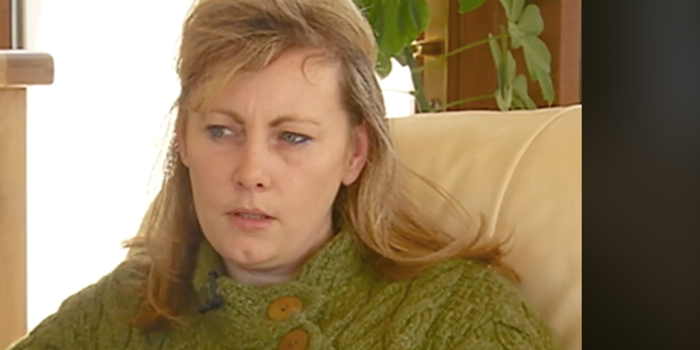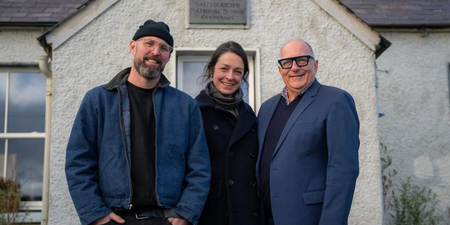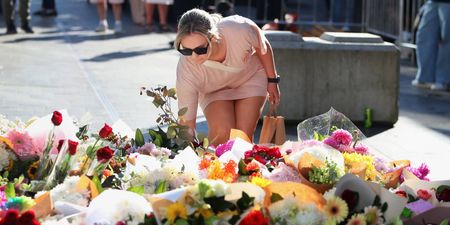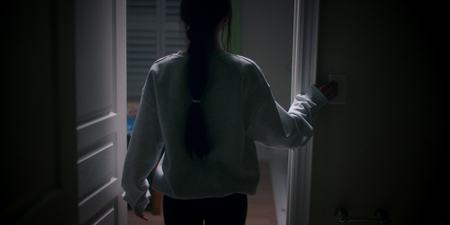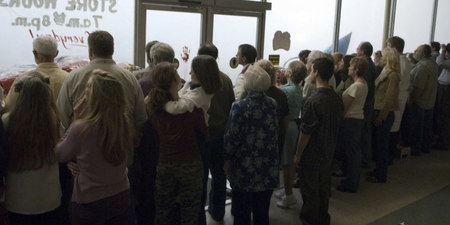Once again, Ireland is on trial for having failed its women.
Emma Mhic Mhathúna knows that she’s dying. She’s dying because she was failed by Ireland’s healthcare system.
Mhic Mhathúna, who is just 37 years old, was diagnosed with Stage 2B cervical cancer in 2016. Three years earlier, she’d had a smear test that failed to pick up signs of cancer that were already present. She is one of 162 women who were falsely given the all-clear after the screening tests that went on to develop cancer.
In a heartbreaking interview with Morning Ireland’s Audrey Carville on Thursday, Mhic Mhathúna said: “The 2013 smear said that I was healthy when I wasn’t. Because of that, then, I actually developed cancer. Now I’m dying. And if the smear test was right – and I was told this by my gynaecologist – that if my smear test was right in 2013 then I wouldn’t be where I am today. That’s what makes it so heartbreaking. I’m dying when I don’t need to die. My children are going to be without me and I’m going to be without them.”
Health Minister Simon Harris confirmed in the Dáil last week that at least 17 other Irish women have died after signs of cancer were missed during their screenings.
Words like “controversy” and “scandal” and “blunder” have been used in the wake of these revelations. Turning to stock language like this is forgivable – we’re all programmed to do it – but it’s inappropriate. 17 dead and more yet to die is not a scandal. It’s not controversial. It’s a failure. It’s a breakdown. It’s a living nightmare.
The fundamental purpose of a government is to protect its people. Once a government has so thoroughly demonstrated that it is incapable of such a basic requirement — what next?
In Ireland, that question is even more complicated. Cases like Vicky Phelan’s and Emma Mhic Mhathúna’s do not stand alone in recent Irish history. Far from it. The Irish government, no matter the iteration, no matter the party, no matter the era, has routinely caused its women to suffer.
The truth is that this abomination runs deeper than any given selection of TDs.
Article 41.2.1 of Bunreacht na hÉireann reads: “In particular, the State recognises that by her life within the home, woman gives to the State a support without which the common good cannot be achieved.”
Ever since the country was founded on the assumption that the woman’s place is in the home, a clause that still exists in Bunreacht na hÉireann today, Ireland has had a designated second-class citizenry. The flaws were built into the foundation.
Authored by Éamon de Valera, with infamously significant input from Archbishop John Charles McQuaid, the Irish Constitution built a mythical “common good” that confined women to the home. Wives and mothers that existed to speak when spoken to and facilitate a “common good” to be reaped by the men. By forfeiting their professional autonomy and their emotional autonomy and their bodily autonomy, Ireland can thrive, and oh just look how we have thrived.
Women in the home. Women in the grotto. Women in their graves. Holding Ireland up.
https://soundcloud.com/morning-ireland/this-isnt-fair-woman-speaks-after-terminal-cancer-diagnosis
From the very outset, Ireland was dominated by a culture and a church that sought to minimise the rights and freedoms of women. Just like Americans can blame their second amendment for their mass shootings, the explanation for Ireland’s decades of misogyny can be found in our founding document.
Just last week we relived the tragic story of Ann Lovett when her boyfriend of the time was interviewed by the Irish Times, describing how bishops and other powerful members of society colluded to cover up the death of a 15-year-old girl and her baby.
Ann Lovett died in 1984, 34 years ago. 34 years from now, we will be doubtlessly publishing the painful legacies and eulogies from the children of Emma Mhic Mhathúna, children that Emma tearfully notes may not even remember her.
The Tuam babies, the Magdalene laundries, Ann Lovett, the marriage bar, symphysiotomy, the Anti-D crisis, Savita Halappanavar. And now this, and soon that. Ireland’s history has seen progress, punctuated by the persecution of women. These horrors have been relentless, and as of 2018, they show no signs of letting up.
Is it anything short of a war on women? Is it that we simply don’t care? The sickening truth is that there’s no difference between those two things. Ireland has been at war with its women since the day it was born, and no incarnation of the country has cared enough to call it off.
“What just makes this whole situation so sick,” Mhic Mhathúna told Morning Ireland, “is that the government aren’t doing anything about it.”
Once again, Ireland is on trial for having failed its women. Emma Mhic Mhathúna is not Exhibit A. At this stage, we’ve exhausted the whole alphabet.
LISTEN: You Must Be Jokin’ with Aideen McQueen – Faith healers, Coolock craic and Gigging as Gaeilge
